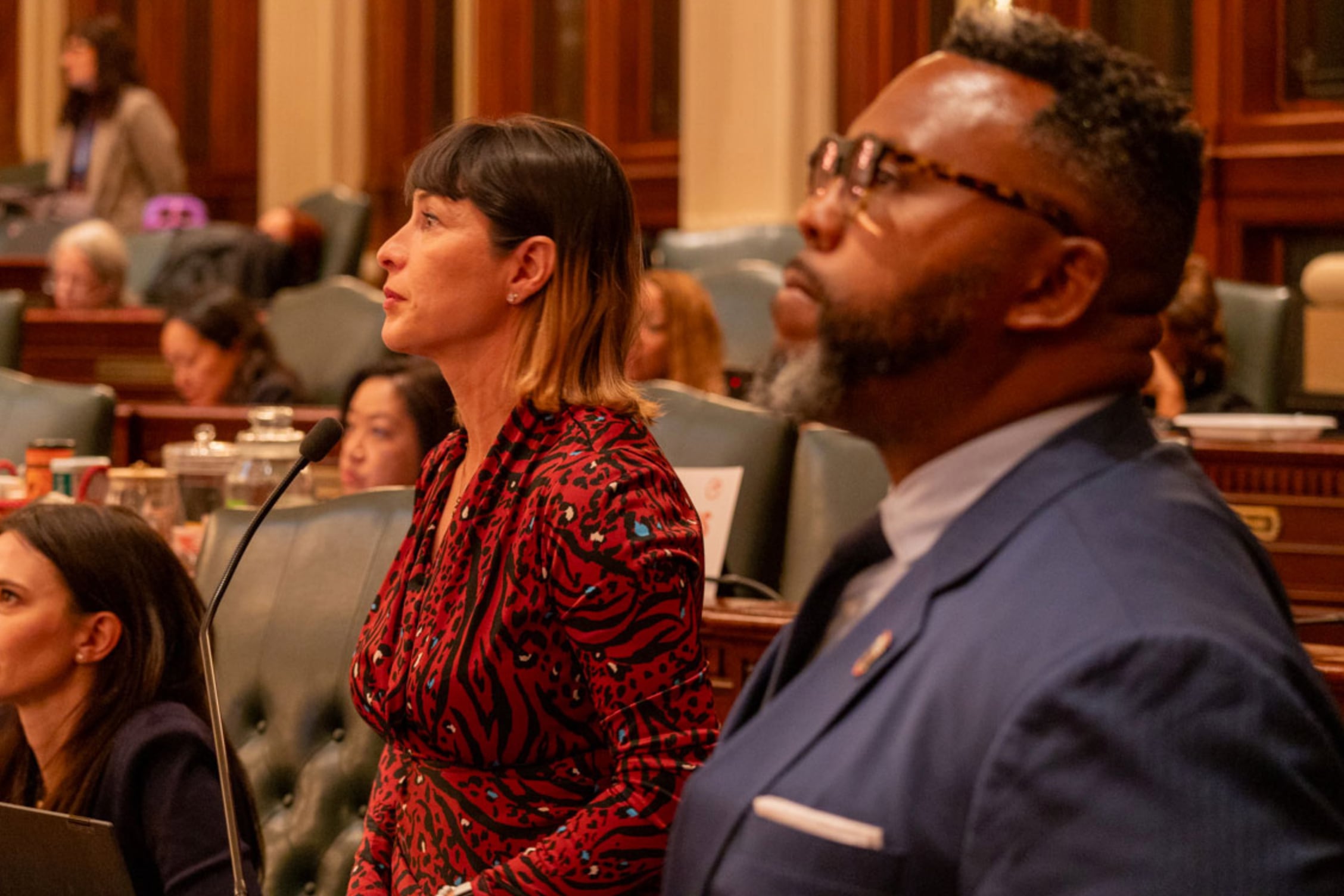Business
Illinois Lawmakers Secure $1.5B for Transit Without Tax Hikes

State lawmakers in Illinois have approved a significant funding package aimed at bolstering public transportation agencies, totaling $1.5 billion. This financial measure, passed without implementing large statewide tax increases, will primarily be supported by revenue redirected from existing sources, including the state’s Road Fund and a targeted increase in sales tax specific to the Chicago area.
The Illinois House voted 72-33 in favor of Senate Bill 2111 early on Friday morning, with the support exclusively coming from Democratic lawmakers. The Senate followed suit with a vote of 36-21 around 4 a.m., concluding over a year of negotiations. The bill’s sponsor, Rep. Eva-Dina Delgado, a Democrat from Chicago, emphasized the urgency of the legislation, stating, “That system has been running on borrowed time.” She pointed to challenges such as fragmented governance, uneven investments, and post-COVID ridership losses that have left public transit struggling with unreliable service.
The funding measures are critical as the Regional Transportation Authority, which oversees the Chicago Transit Agency, Metra commuter rail, and Pace Suburban Bus, faces a projected $230 million funding shortfall by 2026 as pandemic relief funds expire. This shortfall is anticipated to escalate to $834 million in 2027 and $937 million in 2028. Without intervention, transit agencies have warned they could be forced to cut services by up to 40%.
Concerns from Republican lawmakers about the timing of the legislation were voiced during the debate. They argued that the funding crisis for the Chicago Transit Authority would not manifest until mid-2026, questioning the urgency of the bill. Nevertheless, Democratic leaders opted to advance the legislation after extensive discussions.
The funding plan will redirect $860 million from sales tax revenues on motor fuel purchases to public transportation operations. Additionally, the proposal includes a 0.25 percentage point increase in the existing Regional Transportation Authority sales tax, raising it to 1% in several counties and 1.25% in Cook County, which is expected to generate approximately $478 million.
To further support the initiative, drivers on northern Illinois’ toll roads will see an increase of 45 cents per toll, contributing to a new capital program for tollway projects. This adjustment will also be subject to annual inflation increases, potentially yielding up to $1 billion each year.
Despite the bill’s passage, some lawmakers expressed dissatisfaction, particularly those representing downstate areas. Funding for public transportation agencies outside Chicago is set at $129 million annually, significantly below the $200 million they had anticipated. Republican lawmakers voiced concerns that the bill primarily benefits the Chicago area, potentially neglecting the needs of constituents in other regions.
The approved legislation also introduces structural reforms in transit governance, establishing the Northern Illinois Transit Authority. This new entity aims to enhance coordination and integration among the three major service agencies. Comprising 20 members, the board will feature representatives appointed by the mayors and county leaders, which some suburban officials fear may limit their influence on transit decisions.
Furthermore, the bill calls for a law enforcement task force to address public safety issues within the transit systems, tackling concerns such as homelessness and mental health challenges that can escalate into safety problems.
In a noteworthy change, the bill prohibits transit agencies from reallocating operating funds to capital expenses, a practice recently proposed by Metra that raised alarms among state lawmakers. This regulation aims to ensure that transit agencies maintain a clear distinction between operational needs and capital projects.
The funding measures and associated tax increases will not take effect until June 1, 2024. As Illinois takes this significant step towards revitalizing its public transit system, stakeholders remain hopeful that these changes will foster a safer, more reliable, and integrated transportation network for all residents.
-

 Education3 months ago
Education3 months agoBrandon University’s Failed $5 Million Project Sparks Oversight Review
-

 Science4 months ago
Science4 months agoMicrosoft Confirms U.S. Law Overrules Canadian Data Sovereignty
-

 Lifestyle3 months ago
Lifestyle3 months agoWinnipeg Celebrates Culinary Creativity During Le Burger Week 2025
-

 Health4 months ago
Health4 months agoMontreal’s Groupe Marcelle Leads Canadian Cosmetic Industry Growth
-

 Science4 months ago
Science4 months agoTech Innovator Amandipp Singh Transforms Hiring for Disabled
-

 Technology3 months ago
Technology3 months agoDragon Ball: Sparking! Zero Launching on Switch and Switch 2 This November
-

 Education3 months ago
Education3 months agoRed River College Launches New Programs to Address Industry Needs
-

 Technology4 months ago
Technology4 months agoGoogle Pixel 10 Pro Fold Specs Unveiled Ahead of Launch
-

 Business3 months ago
Business3 months agoRocket Lab Reports Strong Q2 2025 Revenue Growth and Future Plans
-

 Technology2 months ago
Technology2 months agoDiscord Faces Serious Security Breach Affecting Millions
-

 Education3 months ago
Education3 months agoAlberta Teachers’ Strike: Potential Impacts on Students and Families
-

 Science3 months ago
Science3 months agoChina’s Wukong Spacesuit Sets New Standard for AI in Space
-

 Education3 months ago
Education3 months agoNew SĆIȺNEW̱ SṮEȽIṮḴEȽ Elementary Opens in Langford for 2025/2026 Year
-

 Technology4 months ago
Technology4 months agoWorld of Warcraft Players Buzz Over 19-Quest Bee Challenge
-

 Business4 months ago
Business4 months agoNew Estimates Reveal ChatGPT-5 Energy Use Could Soar
-

 Business3 months ago
Business3 months agoDawson City Residents Rally Around Buy Canadian Movement
-

 Technology2 months ago
Technology2 months agoHuawei MatePad 12X Redefines Tablet Experience for Professionals
-

 Business3 months ago
Business3 months agoBNA Brewing to Open New Bowling Alley in Downtown Penticton
-

 Technology4 months ago
Technology4 months agoFuture Entertainment Launches DDoD with Gameplay Trailer Showcase
-

 Technology4 months ago
Technology4 months agoGlobal Launch of Ragnarok M: Classic Set for September 3, 2025
-

 Technology4 months ago
Technology4 months agoInnovative 140W GaN Travel Adapter Combines Power and Convenience
-

 Science4 months ago
Science4 months agoXi Labs Innovates with New AI Operating System Set for 2025 Launch
-

 Top Stories2 months ago
Top Stories2 months agoBlue Jays Shift José Berríos to Bullpen Ahead of Playoffs
-

 Technology4 months ago
Technology4 months agoNew IDR01 Smart Ring Offers Advanced Sports Tracking for $169










